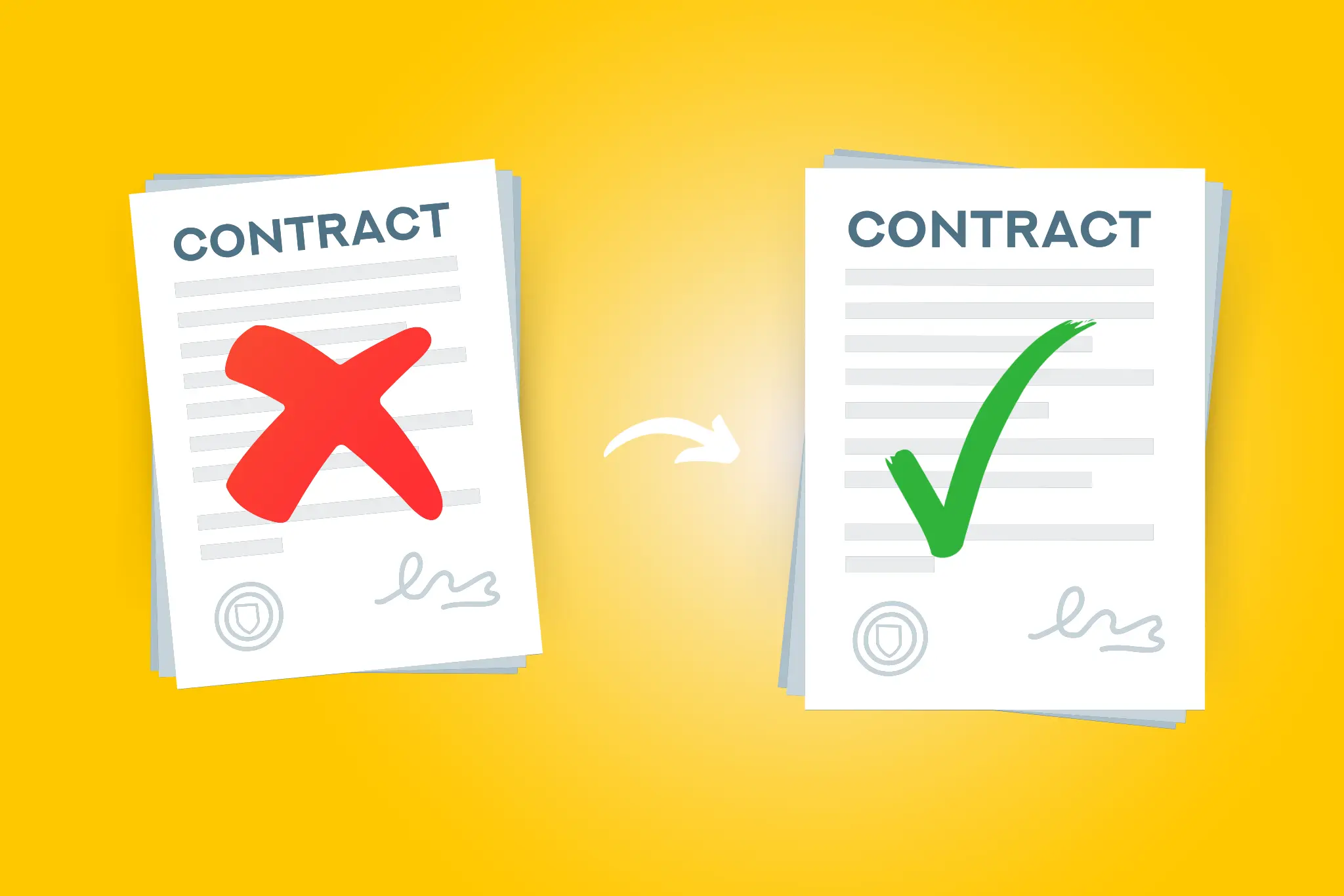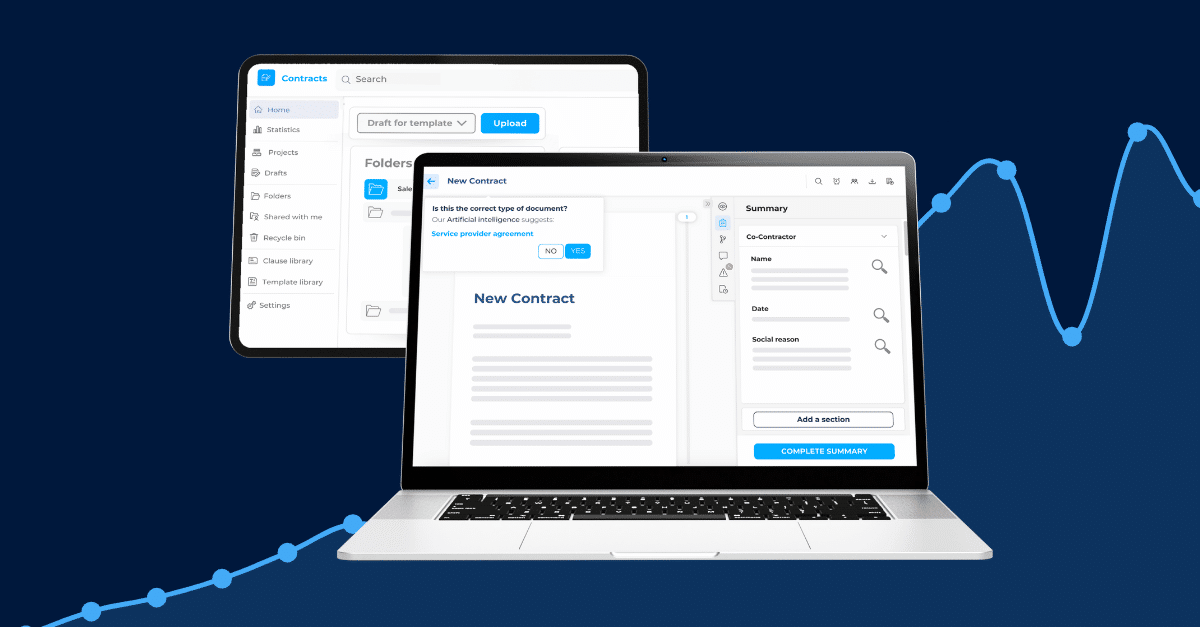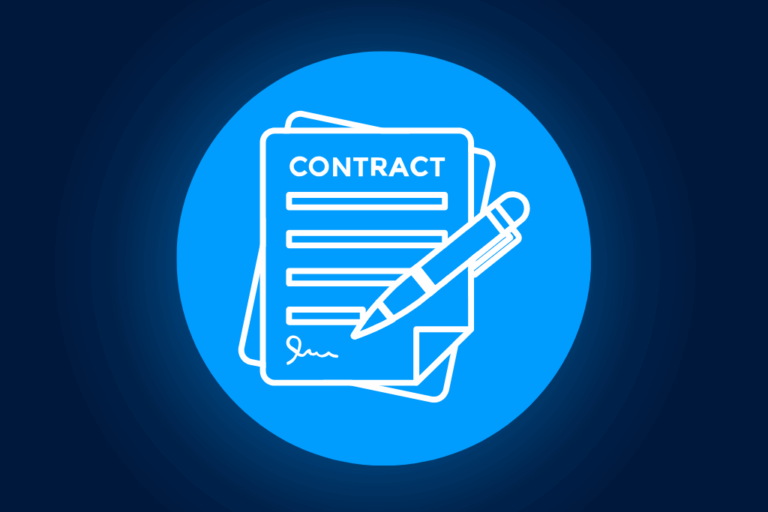Contracts serve as the backbone of business relationships, encapsulating agreements, obligations and expectations between parties. However, amidst the complexities lie inherent risks that, if unaddressed, can lead to financial losses, damaged reputations, and operational setbacks. Understanding and effectively managing these risks are pivotal for thriving in the realm of contract management.

Understanding Legal Risk
A legal risk arises when an organization is exposed to potential litigation or contractual risks that can impact its bottom line, reputation, or daily business operations. These potential risks often stem from poor oversight, missing contract review processes, or weak compliance practices. Common types of contract risks include:
1. Breach of contract: A breach of contract occurs when one party fails to honor the agreed contract terms, such as making late payments, delivering poor-quality goods, or missing deadlines. Such breaches can lead not only to legal disputes and financial risks, but also to reputational damage and fractured business relationships. For example, disputes around sales or services agreements are among the most common causes of litigation.
2. Failure to comply with regulations: An organisation may become vulnerable to regulatory violations if it enters into a contract without proper legal review or oversight. Noncompliance with local, state, or federal regulations can result in audits, fines, and further legal disputes. Regular contract review with the right digital tools and templates can help ensure contract terms align with evolving regulatory requirements.
3. Other causes of action: Depending on the contents of an agreement, many other issues can expose an organization to litigation. Examples include intellectual property infringement, disclosure of confidential information, or misuse of digital services.
Types of Risks in Contract Management
At the heart of contract management lie three primary risk categories:
| RISK | PREVENTION STRATEGY |
| Execution Risks: failure to meet contractual obligations. | Thoroughly analyze the contract to identify specific risks associated with each clause and term. Incorporate proactive measures to mitigate identified risks. |
| Economic Risks: Non-compliance with financial commitments. | Introduce preventive and control measures within the contract. This could involve clauses for deadline alerts, compliance obligations, and additional checks during execution. |
| Reputational Risks: Damage to a company’s image or relationships. | Identify key performance indicators and establish clear procedures for managing issues and deviations. Define indicators to proactively address challenges and maintain reputation integrity. |
Mitigating Risks at Different Contract Stages
Pre-Signature Stage: Negotiation and Contract Preparation
Before contracts are finalized, the negotiation and preparation phase demand meticulous attention. This step brims with potential pitfalls, from overlooking crucial elements to mismatched expectations. Addressing these concerns is critical to prevent financial losses and avoid misunderstandings. Strategies must focus on comprehensive assessments, ensuring every clause aligns with the parties’ needs and that confidentiality safeguards are in place.
- Possible risks: Inadequate processing of proposals, unsuitable contract structures, and lack of alignment with needs.
- Prevention strategy: Thorough analysis, incorporation of clauses, and ensuring legal frameworks protect confidentiality and rights.
➡️ Read also: Contract Management: What Artificial Intelligence Brings to the Table
Signature Stage: Contract Signing
As contracts move toward signing, risks often revolve around delivery delays, compliance pitfalls and misunderstandings. Ensuring clarity in obligations and timelines is paramount to steer clear of conflicts or lapses in compliance. Vigilant oversight and clear communication are essential during this pivotal stage to fortify the integrity of the agreement.
- Possible risks: Delays in delivery or non-compliance.
- Prevention strategy: Stringent oversight and clarity in obligations to avoid disputes and uphold the agreement’s integrity.
Post-Signature Stage: Contract Resolution and Implementation
After contracts are signed, certain risks persist. Renewal uncertainties, unexpected hurdles in execution, or termination disputes may surface. Here, adaptability and proactive measures come into play. Swift resolution of disputes and an agile approach to navigating unforeseen changes are indispensable for successful contract resolution and implementation.
- Possible risks: Challenges in contract renewal, unforeseen contingencies and termination issues.
- Prevention strategy: Proactive monitoring, quick dispute resolution, and an agile approach to handling unexpected changes.
➡️ Read also: 15 Questions to Ask Your Contract Lifecycle Management Provider About Security
Leveraging Technology for Contract Risk Management
Having delved into the multifaceted risks entwined with contract management, the spotlight now shifts to the role of technology in streamlining this intricate process. At DiliTrust, we understand the complexities businesses face in managing contracts, which is why we offer a dedicated Contract Lifecycle Management (CLM) solution powered by proprietary AI.
In our webinar, ‘Contract Risk Management: How AI and Automation Make It Easier’, we delve into the advanced features of our CLM solution. Join us as we show how technology, specifically Artificial Intelligence, can revolutionize contract management software:
- Centralizing and standardizing clause management: our AI-powered solution flags critical clauses, streamlining the management process and ensuring standardized practices.
- Accelerating contract reviews: experience accelerated reviews as our software proactively alerts you to critical deviations from your standards, saving time and ensuring adherence to established norms.
- Enhancing process security: by leveraging AI, our CLM system accurately identifies and selects the most suitable contracts based on key information and identified risks, fortifying your internal processes.
During the webinar, we’ll demonstrate how these features work in real-time, illustrating how AI and automation simplify contract risk management, making the process more efficient, secure and compliant.



